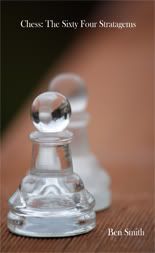Èṣù, Eshu
Èṣù (other names include Exu, Eshu Eleggua, Esu Elegbara, Eshu Elegbara, Elegba, Legba) is one of the Orisha (Divinities) of Yoruba spirituality and mythology, he is now Divinity to many diaspora. Esu (pronounced A-shew) is the most misunderstood of the orisa. He is also one of the most powerful.
He is both a mischief maker and a great teacher. In tradition he is the gatekeeper of communication between this world and the spirit world. He also represents the doors of possibilities that open and close in one’s life. He introduces you to confusion, hard choices and struggle which is why some would confuse him with the devil.
However he brings these circumstances into your life so that through your choices whether good or bad your spirit will mature. You pass the test and open the right door, you will be rewarded. You open the wrong door out of selfishness, carelessness, or lack of wisdom etc. and he will hand you your due consequence. In effect he introduces roads that create the need for choices, and it is the individuals choices that guide his or her own destiny. He is neither good nor evil and he shows allegiance to no one.
Esu rules through the ajo-gun, the beneficial as well as detrimental forces of the universe. His colors are red and black, or in some cases black and white to display the duality of his nature. These forces were divinely endowed by Oludumare to be either good and generous or bad and evil.
The good ajogun control wealth, children, wives/husbands, success, love, and so on. The evil ajogun control death, illness, loss, mental unrest, and similar forces. Esu has all the ajogun at his command and can be kind and generous if approached positively or can unleash the demonic forces of the evil ajogun when provoked. With this ability, Esu serves a dual purpose, both good and bad, in human existence. Esu, through sacrifice, serves as messenger between humans and the other orisa and between humans and God.
The importance of Esu is clear, yet the first Christian missionaries were convinced that Esu was the Devil. These missionaries confused Esu’s ability to trick and punish those who do not sacrifice with an innate predisposition to do so. Esu does punish, but he does not punish capriciously. Esu rewards, but he does not reward the undeserving. His apparent contradictions are not contradictory at all. Rather, they are logical responses to the behavior of those he deals with. From a Christian viewpoint of divine forgiveness, the actions of Esu toward those who ignore their obligations might indeed seem extremely harsh and unforgiving, the work of “a devil.” Yet, in the Yoruba cosmology— in which the universe contains all possibilities, both good and bad, and individuals have opportunities for controlling their own destinies by working with natural forces—the failure to control one’s own destiny is seen as an act of gross stupidity with potentially dire consequences.
To those who work with and not against the natural order of the universe, who “sacrifice” in both the literal and the philosophical meaning of the word, the potential is unlimited and the rewards beyond comprehension.
Esu is also the possessor of divine ase, the inner energy and power that allows us to access the right side of the brain and use its powers. Ase is similar to, but more than, aura, soul, or spirituality. It is a living, breathing, palpable flow of energy that can either increase or diminish, depending upon our behavior.
It is believed that after Oludumare created such evil things as death, disease, illness, pestilence, plague, temper, jealousy, fighting, and loss, and after he created such blessings as love, wives, husbands, children, money, and long life, he created Esu’s powers. Esu’s powers allowed him to control or limit the excesses of evil, whose powers would otherwise have been unlimited. By controlling the powers of evil through sacrifice, Esu makes available to the men and women who dwell on Earth the blessings of the good things and the orisa that symbolize them.
Esu loves music and dance costumes and laughter. He loves good food and wine. Moderation is a characteristic of other orisa, not Esu. He wants what he wants, and he wants it now. He is rampantly sexual, and every male Esu figure contains either an upward spike of hair or a spike of iron to symbolize his constant phallic capacities.
Though usually symbolized as a male figure, the actual Esu shrines in Nigeria consist of both male and female Esu. All orisa in the Yoruba pantheon, contains both male and female characteristics—just as all humans contain both.
Esu can never be bored. He will easily and willingly provoke conflict or mischief among others simply to get some action going. He uses trickery and illusion to both punish and reward. He is a master of herbal magic and medicine.
Huge and small, tall and short, active and inactive—just a few of the seemingly contradictory facets of this powerful orisa. But in the greater sense, there are no contradictions at all, for Esu represents choices—your choices. That you see them as limited is simply your perception; Esu knows that limitlessness really exists.
He, unlike the Christian notion of the Devil, does not tempt you or encourage you to make the wrong choices. Rather, he rewards you for making the right ones. When you, of your own volition, choose the wrong course of action, he uses these same actions to punish and point out your foolishness. Cruel? No, simply real. If we cut down the trees of ancient forests, pollute our waters, and poison our air, the results will be as harsh and definitive as any that Esu could conceive. Neither he, nor the universe we are part of, “forgives.” If we survive our mistakes, we learn from them. If we place dunce caps on our heads, we must remove them. If we sacrifice, we prosper and survive.
That is Esu’s role. Though carefree, fun-loving, and loathing to be “tied down,” his sense of justice is greater than any orisa other than Obatala and Ogun. And his free-wheeling life-style and love of merriment are not contradictions to that sense of justice any more than are any of his other actions. Rather, they are the examples that will hopefully erase our ingrained sense of foreboding, impotence, and helplessness about life and our role in it. Esu says, “Life can be fun, rewarding, and exciting if you make the right choices.” How sad that most of us were raised to think that the “right” choices preclude personal enjoyment and satisfaction!
Legacy
Carried to the new world during the middle passage by descendants of West African diasporic faiths like Santería/Lukumi ( In the Caribbean) and Candomblé (In brazil) this divinity developed in the Americas, where Èṣù was and is still sometimes identified with Saint Anthony of Padua, Saint Michael or Santo Niño de Atocha, depending on the situation or location. He alson known as Exu de Quimbanda in Candomblé and Legba in haitain Vodun.
Personally I find this archetype of right and wrong very interesting .
Wednesday, December 2, 2015
nok-ind:
Subscribe to:
Post Comments (Atom)





 "Drunk at the matinee" is a collection of candid poetry about stupid shit that we all experience from day to day.
"Drunk at the matinee" is a collection of candid poetry about stupid shit that we all experience from day to day.







No comments:
Post a Comment